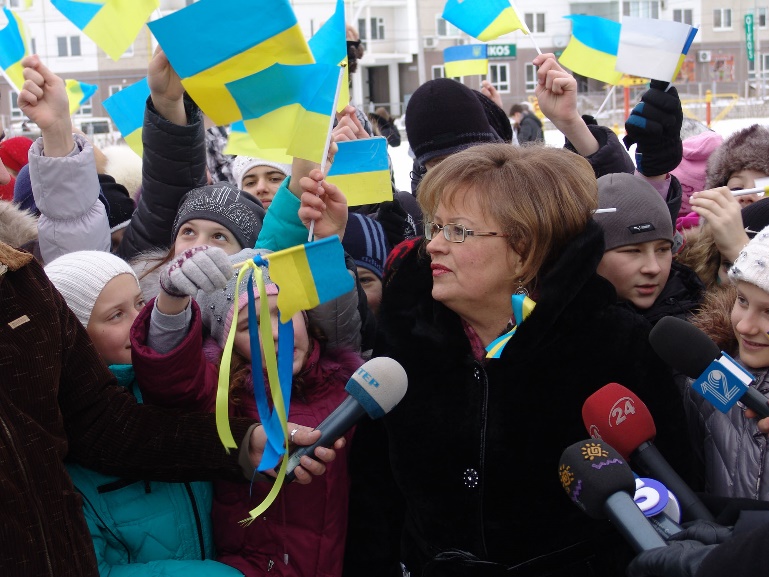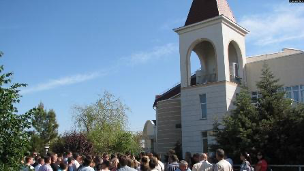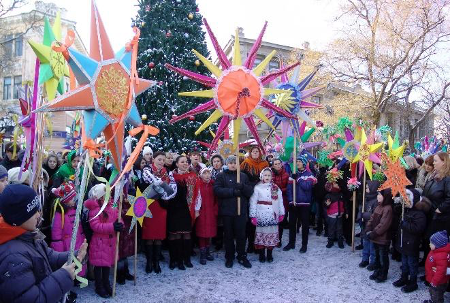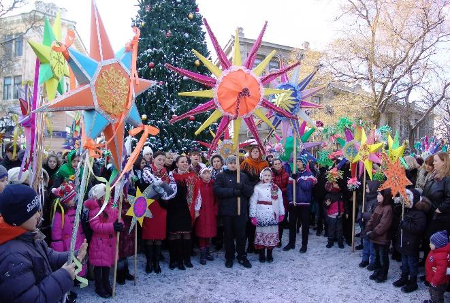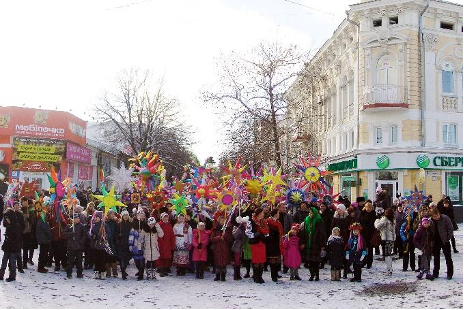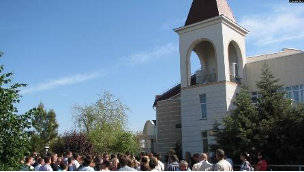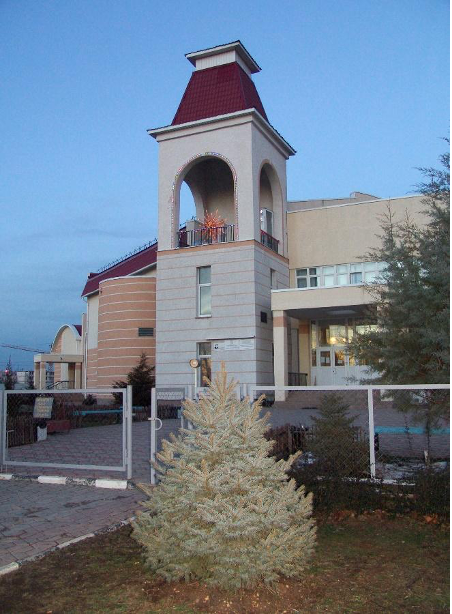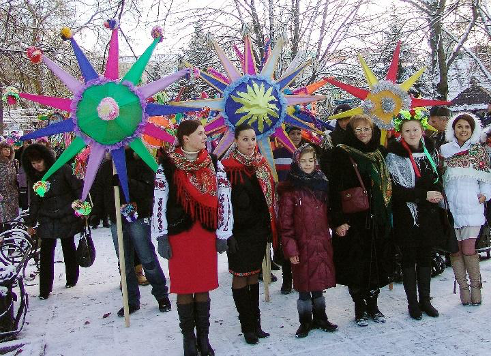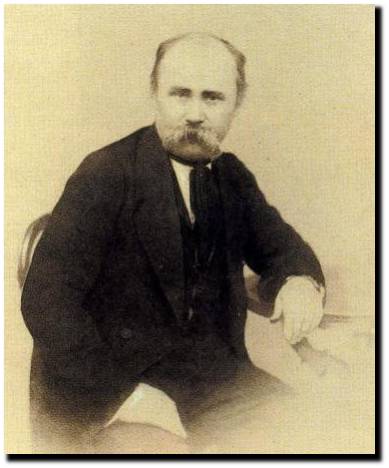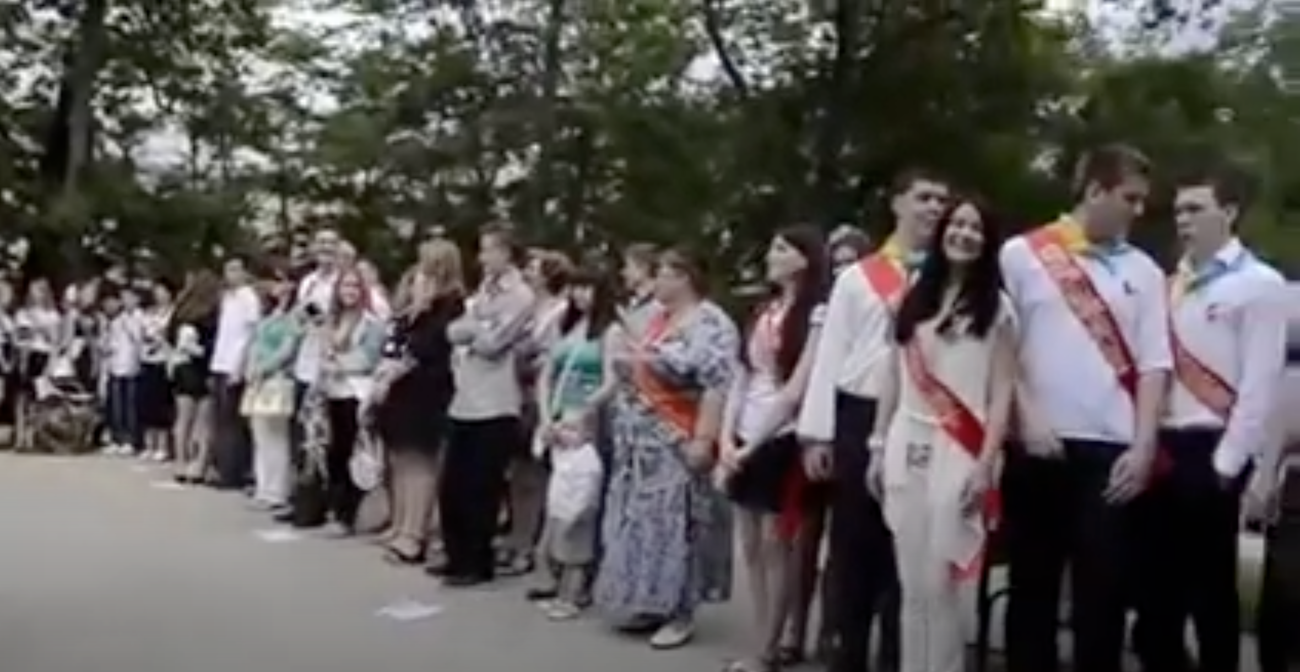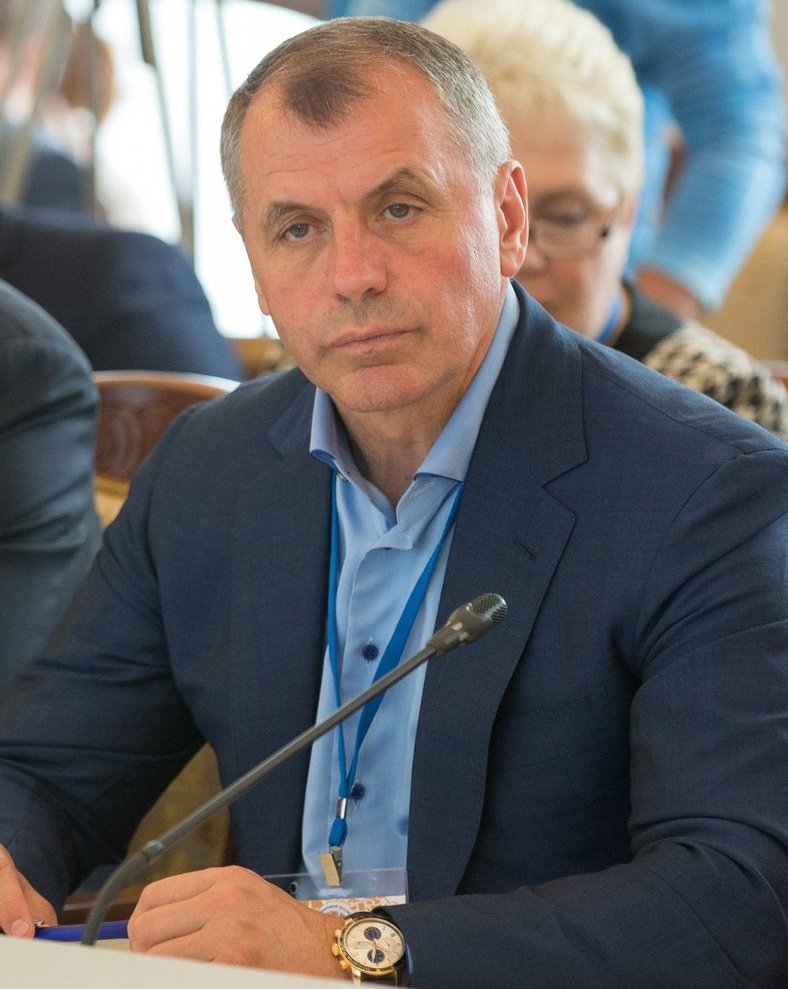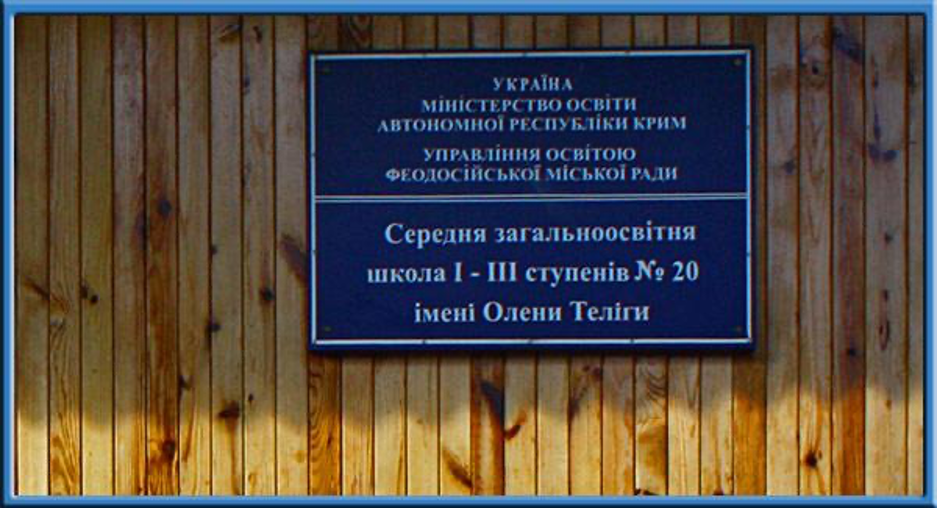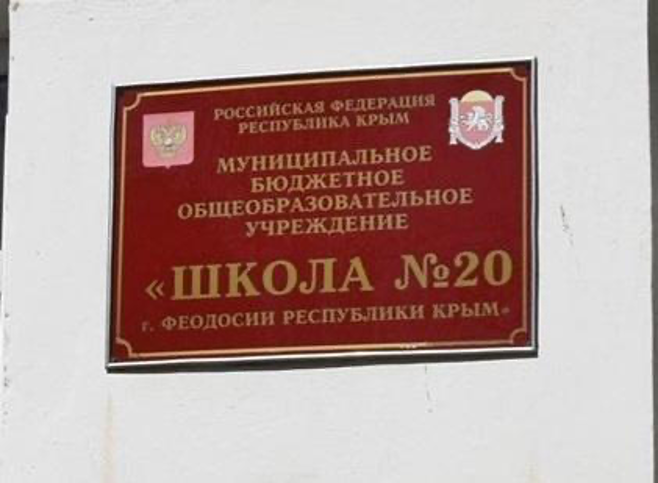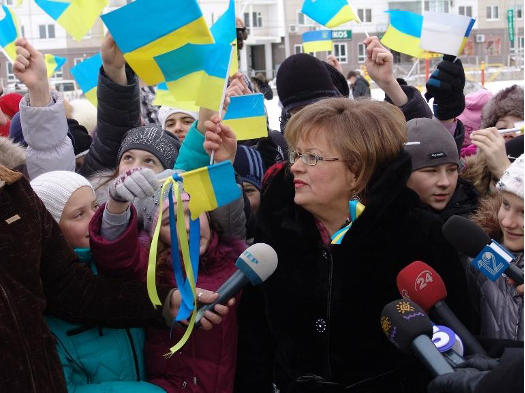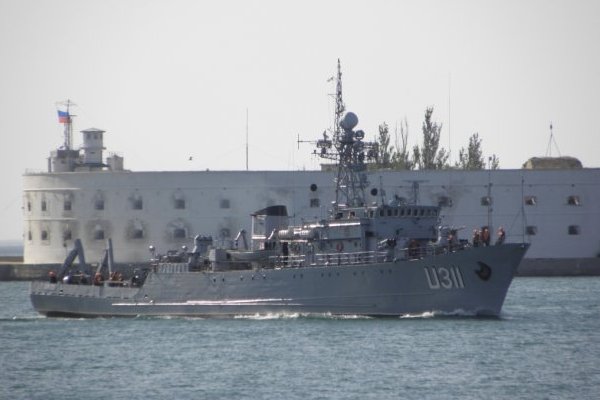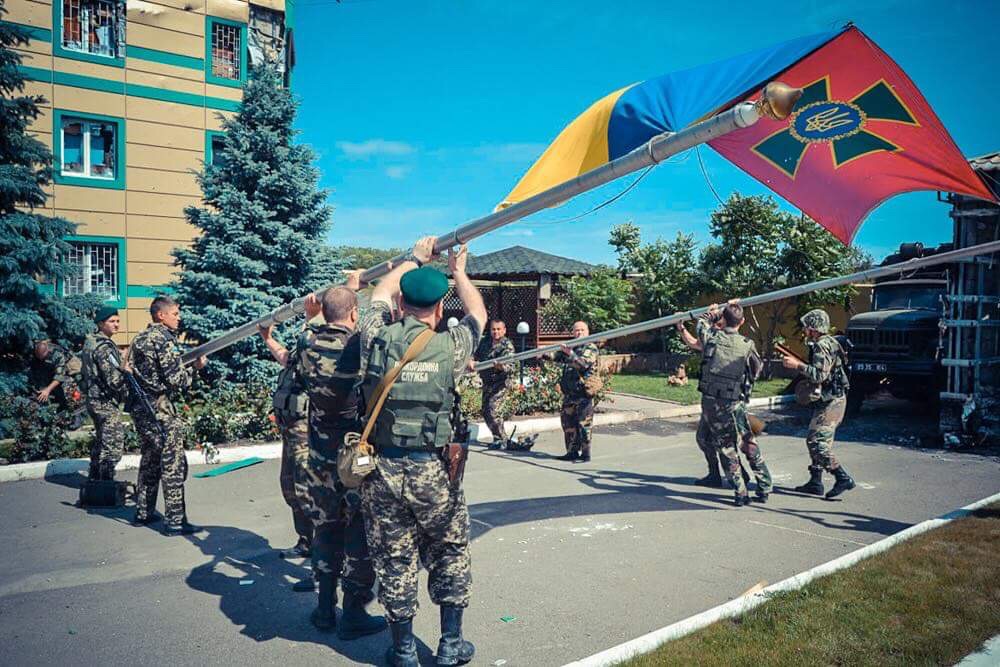On 04/10/2014, a few dozen people picketed the Ukrainian gymnasium, claiming to be parents of the students and representatives of the so-called "self-defense". Later on, Ilya Glazkov, the self-proclaimed vice mayor of Simferopol, and Tatiana Sukhina, so-called "head of the education department of the Executive Committee of Simferopol", would pay a visit to the head teacher of the gymnasium. They would threaten to have Natalia Rudenko fired with a cause unless she signed a letter of resignation by mutual consent.
Just a day before, Natalia Goncharova, the illegitimate minister of education of the Republic of Crimea, said on a talk show on one of the Crimean TV channels that the so-called "ministry" reached an "internal agreement" to convert the Ukrainian gymnasium into a Russian-language school. The head teacher stood for preservation of the status of the gymnasium, but, under duress, she had to write a letter of resignation.
In April 2014, the parents' committee of the gymnasium turned to the leadership of the self-proclaimed Republic of Crimea, demanding that the order terminating the employment of the head teacher be revoked. In their opinion, such a decision posed a threat to the existence of the educational institution in its current status and to the composition of its teaching staff, violating the children’s right to get education in the Ukrainian language. The parents pointed out that even the so-called "Constitution of the Republic of Crimea" proclaimed Ukrainian to be one of state languages. The protest was to no avail.
In May 2014, Tatiana Sukhina announced that 3/4 of the classes in the gymnasium would be taught in the Russian language. Within few months, the educational facility called the Ukrainian Gymnasium School would lose its Ukrainian-language status and was illegally converted into the so-called "Simferopol Academic Gymnasium".
By the beginning of the new academic year, in September 2014, there was not a single Ukrainian-language first class there. Subsequently, cadet classes appeared in the gymnasium which would prepare the Crimean youth for the service in the occupation army. The chairman of the illegitimate "State Council of the Republic of Crimea" Vladimir Konstantinov. joined the board of trustees of the gymnasium.
 Simferopol, 177 Kyivska str.
Simferopol, 177 Kyivska str.
 2014-04-10
2014-04-10
